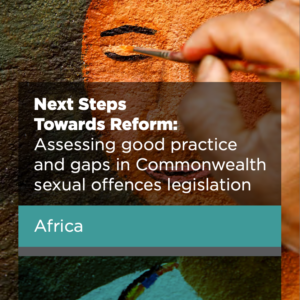Botswana’s sexual offences laws are contained in the Penal Code Act 1964, as amended by the Penal Code (Amendment) Act 2005 (PC). The Criminal Procedure and Evidence Act 1939 (CPEA) contains the rules of evidence which apply to sexual assault offences.
Although some sexual offences were revised in 2005, they do not adequately reflect good practice or human rights standards. In particular, rape excludes penetration by non-sexual organs, such as fingers, and marital rape is not an offence. There are child sexual assault offences however, they are not comprehensive and exclude, for example sexual grooming and sexual communication with a child. They are also weakened by not providing for close-in-age defences. Close-in-age defences or exceptions to child sexual assault are necessary to avoid criminalising young people and children who engage in consensual sexual activity with their peers. The legislation also criminalises sexual intercourse with a woman who has an intellectual disability regardless of her capacity to freely consent and uses the derogatory terms ‘imbecile’ and ‘idiot’.
In June 2019, the Gaborone High Court struck down the PC provisions criminalising consensual same-sex sexual activity as unconstitutional. At the time of writing, this decision was under appeal by the government to the Court of Appeal, but had not been decided. All non-consensual sexual acts, including anal ‘rape’, should be expressly included in the general sexual assault provisions, such as ‘rape’ and ‘sexual assault’, as well as in child sexual offences. All of these crimes should be gender-neutral.
Botswana is a state party to relevant international and regional human rights treaties, including the Convention on the Elimination of All Forms of Discrimination against Women, Convention on the Rights of the Child, Convention against Torture and Other Cruel, Inhuman or Degrading Treatment or Punishment and International Covenant on Civil and Political Rights. It has not joined the Convention on the Rights of Persons with Disabilities. Botswana is also a party to the African Charter on Human and Peoples’ Rights, but has not joined the Protocol to the African Charter on Human and Peoples’ Rights on the Rights of Women in Africa (Maputo Protocol).
The full assessment of Botswana is also available here.



